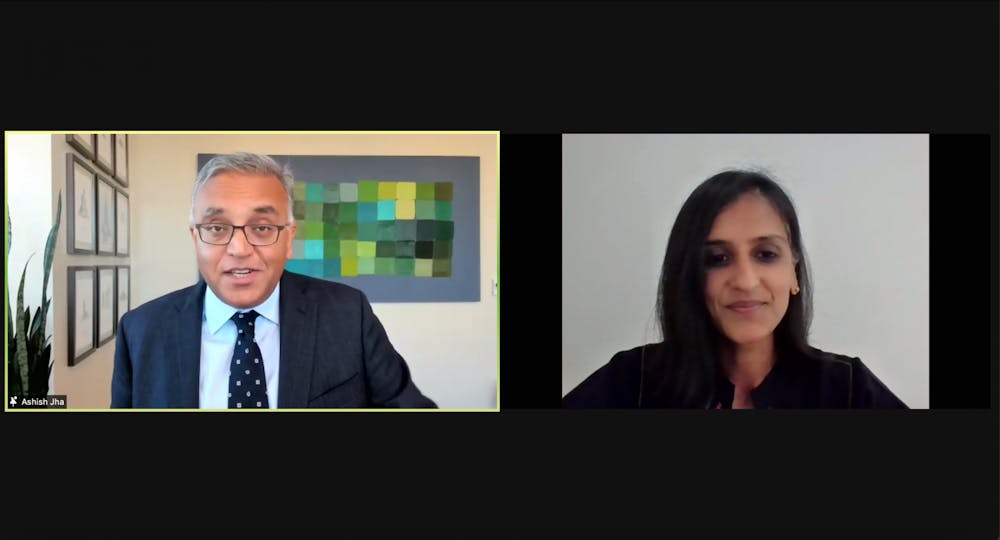Public health researcher and practitioner Sapna Desai ’99 spoke about the nuances of public health and development, public health degrees and the impact of COVID-19 in a Tuesday conversation with Ashish Jha, dean of the School of Public Health. The conversation was a part of Jha’s virtual Conversations with the Dean series.
Desai described her own journey in public health after attending Brown as an undergraduate. She first worked to research and implement programs for the Self-Employed Women’s Association, an organization in India for women working in the informal economy. Currently, Desai is a practitioner with the Population Council in New Delhi, an organization that conducts research in more than 50 countries to address health and development issues centering around reproductive health, HIV and adolescence and gender issues. The Population Council is a “great example” of an international organization, Desai said, with its work varying among countries based on each one’s priorities.
In response to a question from Jha about the roles of economic development and women and girls’ education in improving global public health, Desai discussed the wide variation in health systems and women’s education between states in India. Rising economic status alone does not improve public health, Desai said, and variance in education does not necessarily contribute to differences in health outcomes.
“There’s no health outcome where there’s such a clean line between investment and improved outcomes,” Desai said.
In India, public health in different states has improved at different rates due to fiscal investment and “political priority for health,” Desai said. Desai said she believes that we should not only increase investments, but examine how states in India that have successfully improved health systems have made their investments.
She also stressed the importance of putting human rights at the center of improvements in public health, using the 1994 International Conference on Population and Development, which focused on people-centered development progress, as a framework. ICPD “still should steer us when we think about … the rights of people to be able to freely choose,” Desai said. “Because what you’re doing is then not just talking about access to a service, but rather access to an entire set of choices.”
During the conversation, Desai also commented on COVID-19 as a “massive wake up call for everyone to see the importance of health.” She also stressed the need to bolster and improve primary care systems in India — primary care “is just not there to the extent it needs to be.”
Reflecting on her own experience coming into the public health field, Desai challenged the way public health is currently taught, as she believes there is a lack of technical education. Upon completing her Master of Science at Harvard T.H. Chan School of Public Health, she arrived at SEWA feeling as having “never been so unequipped to actually deal with monitoring and evaluation” of public health conditions. Few universities allow opportunities for students to do hands-on work to gain the experience necessary for a career in public health, she said.
Desai additionally stressed the importance of engaging with people on the ground for those currently working in public health.
“We are a field of practice, even in research,” she said. “I don’t develop (research) questions only by doing a literature review. It’s almost always very concentrated with people and practitioners.”
Haley Sandlow is a contributing editor covering science and research. She is a junior from Chicago, Illinois studying English and French.





